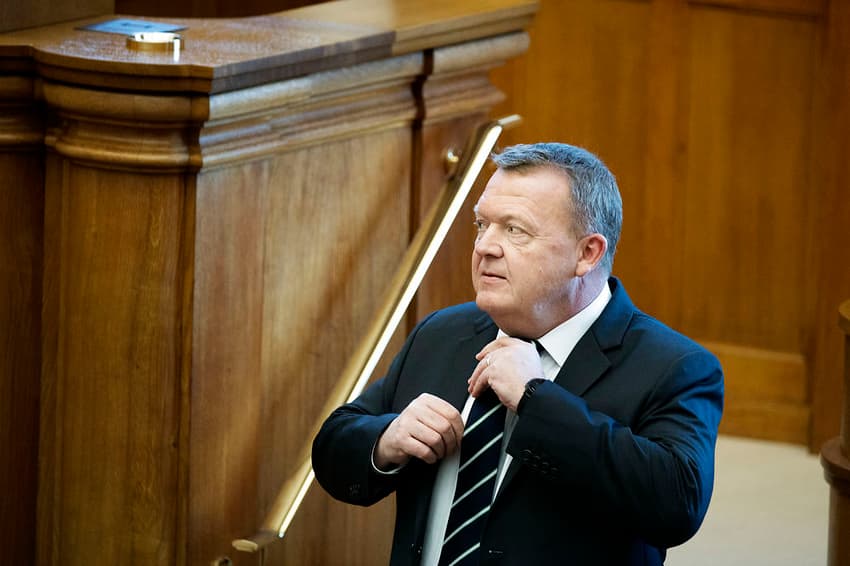Danish PM sends self to Morocco for UN conference

Prime Minister Lars Løkke Rasmussen on Thursday evening ended uncertainty about who will represent Denmark at next week’s UN Global Compact for Safe, Orderly and Regular Migration meetings in Morocco by announcing he would attend himself.
Rasmussen had previously said that the final decision over which minister Denmark would send to the meeting rested with him.
That came after Minister for Immigration and Integration Inger Støjberg and Minister for International Development Ulla Tørnæs both stated they would not be going.
“I’m currently looking at how other countries are represented and we will then send a minister in line with that. I decide who will be sent to the meeting,” Rasmussen said earlier this week.
Germany is sending Chancellor Angela Merkel to the conference, and several other government leaders will also be present.
The announcement could drive a wedge between Rasmussen and the anti-immigration Danish People’s Party, which is against the UN declaration, claiming it could force Denmark to become more lenient on migrants.
In response, the PM has stressed that the compact is not legally binding.
“The UN declaration is a symbol of whether or not we want to part of international partnerships, and I am pleased that a broad majority in parliament signalled clear support for Denmark’s participation during Wednesday’s parliamentary debate,” he said in a press statement.
“Cross-border problems require cross-border solutions – not isolation,” he added.
“As Prime Minister, I am in no doubt as to on which side of the line Denmark should be,” he said.
The UN compact marks the first time the world organization has agreed on a list of global objectives to tackle the challenges involved in migration for individual migrants, and at the same time to maximize benefits for the countries taking in immigrants.
A legally non-binding agreement, it includes a stated intention to give vulnerable migrants equal status to refugees and to work against economic support for media that spread intolerant views on migrants.
The text also provides for easier repatriation of migrants and is intended to help organize migration more effectively.
Not every country supports it. Among others, the United States, Hungary, Austria, the Czech Republic, Switzerland and Slovakia have spoken out against the pact.
After the declaration has been politically agreed on Monday, it will be put to a vote at the UN General Assembly in New York. That will take place later this month.
READ ALSO:
Comments
See Also
Rasmussen had previously said that the final decision over which minister Denmark would send to the meeting rested with him.
That came after Minister for Immigration and Integration Inger Støjberg and Minister for International Development Ulla Tørnæs both stated they would not be going.
“I’m currently looking at how other countries are represented and we will then send a minister in line with that. I decide who will be sent to the meeting,” Rasmussen said earlier this week.
Germany is sending Chancellor Angela Merkel to the conference, and several other government leaders will also be present.
The announcement could drive a wedge between Rasmussen and the anti-immigration Danish People’s Party, which is against the UN declaration, claiming it could force Denmark to become more lenient on migrants.
In response, the PM has stressed that the compact is not legally binding.
“The UN declaration is a symbol of whether or not we want to part of international partnerships, and I am pleased that a broad majority in parliament signalled clear support for Denmark’s participation during Wednesday’s parliamentary debate,” he said in a press statement.
“Cross-border problems require cross-border solutions – not isolation,” he added.
“As Prime Minister, I am in no doubt as to on which side of the line Denmark should be,” he said.
The UN compact marks the first time the world organization has agreed on a list of global objectives to tackle the challenges involved in migration for individual migrants, and at the same time to maximize benefits for the countries taking in immigrants.
A legally non-binding agreement, it includes a stated intention to give vulnerable migrants equal status to refugees and to work against economic support for media that spread intolerant views on migrants.
The text also provides for easier repatriation of migrants and is intended to help organize migration more effectively.
Not every country supports it. Among others, the United States, Hungary, Austria, the Czech Republic, Switzerland and Slovakia have spoken out against the pact.
After the declaration has been politically agreed on Monday, it will be put to a vote at the UN General Assembly in New York. That will take place later this month.
READ ALSO:
Join the conversation in our comments section below. Share your own views and experience and if you have a question or suggestion for our journalists then email us at [email protected].
Please keep comments civil, constructive and on topic – and make sure to read our terms of use before getting involved.
Please log in here to leave a comment.